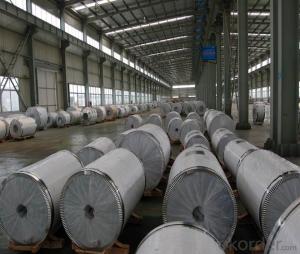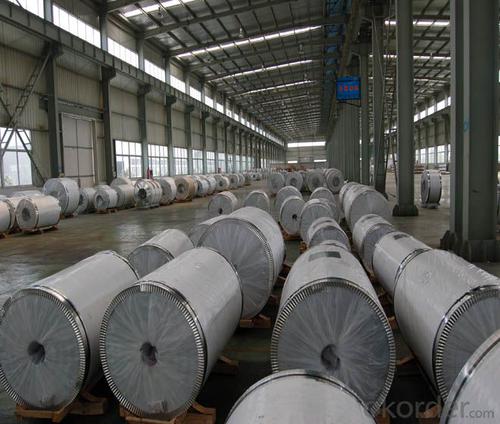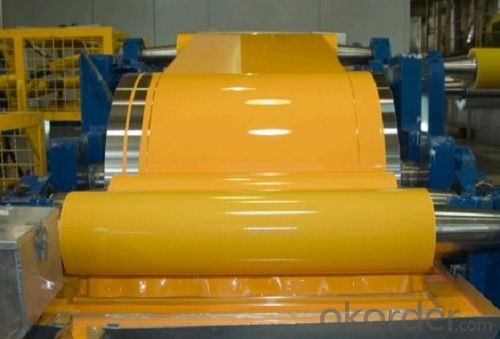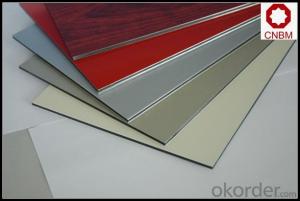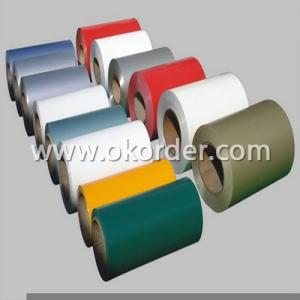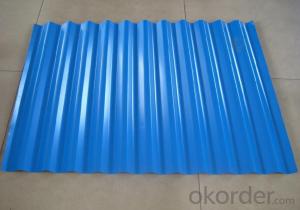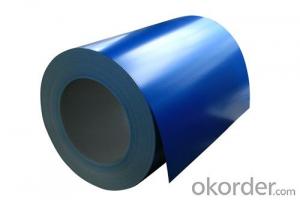Aluminum Coil Price Per Pound - Decorative Color Coated Aluminum Coil Favorable Price
- Loading Port:
- Shanghai
- Payment Terms:
- TT OR LC
- Min Order Qty:
- 2.5
- Supply Capability:
- 5000 m.t./month
OKorder Service Pledge
OKorder Financial Service
You Might Also Like
Specification
Color Coated Aluminum Coil
l Product Introduction
Coated aluminum coils are widely applied to aluminum ceiling, roofing, fireproof roller shutter, doors, wall panel, facade cladding, etc.
l Product Specification:
01) Material: aluminum alloy A1100, A3003, A3005, A3105
02) Aluminum thickness: 0.20-1.20mm
03) Max coil width: 1600mm(standard 1240mm)
04) Coil's standard diameter: 1200mm, Interior diameter: 405mm,505mm, etc.
05) weight: 0.5-3.0T/coil or by buyer's option
06) Surface treatment: PE or PVDF coating
07) Color: solid, metallic, glossy, matte, wooden grain, marble stone,etc.
08) Dried and baked: oven baked at 450 degree F
09) Coating thickness: PVDF-25 micron, PE-18 micron
10) Coating hardness: (pencil hardness) HB
11) Coating adhesive: no lower than first grade
12) Impact resistance: no cracking and peeling(50kg/cm, ASTMD-2794:1993)
13) Flexibility(T-bend): 2T or by your option
14) MEK resistance: more than 100
15) Outer packing: wooden plate, covering with craft paper and film, Eye to Sky or wall to Sky packing.
l Packaging & Delivery
Packaging detail: Standard seaworthy exporting carton, Wooden pallets, waterproof paper and plastic coverage or as customer's requirements
Delivery detail: about 25 days from received oiginal L/C or advanced payment
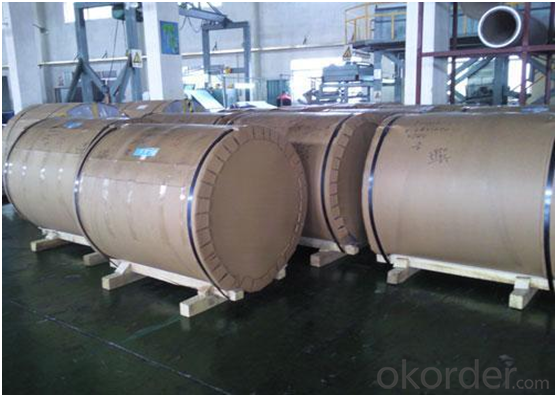
l Company Profile
CNBM International Corporation, China National Building Materials (Group) Corporation, is one of the largest companies in China building material & equipment industry, with 42,800 employees and sales in 2005 of US Dollar 4.395 billion. In 2006, China National Building Material Company Limited was listed on Hong Kong Stock Market with the stock code as 3323.
Color coated aluminium coil is a popular product in the market of CNBM. With advanced technology and equipment, CNBM has sold its hight quality color coated aluminium coil to the world.
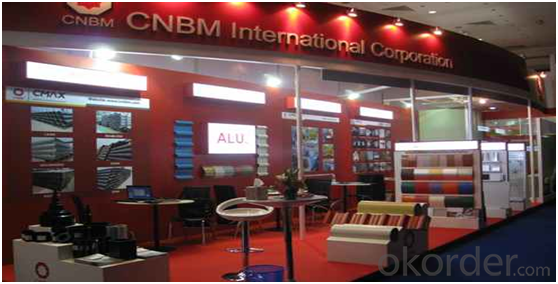
l CNBM World Wide
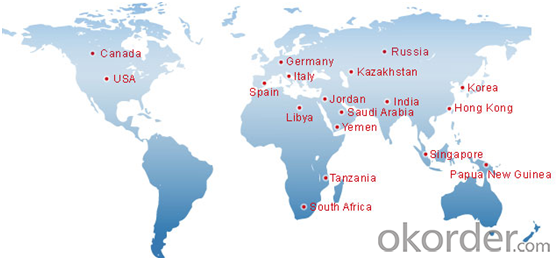
l Product Images
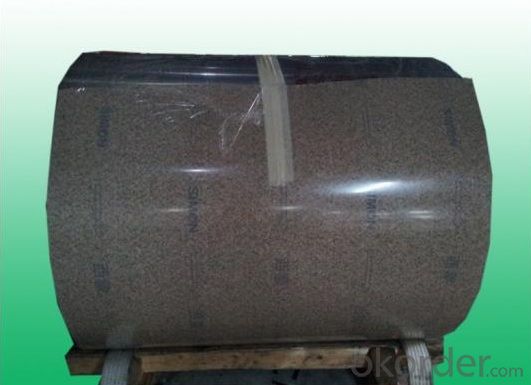
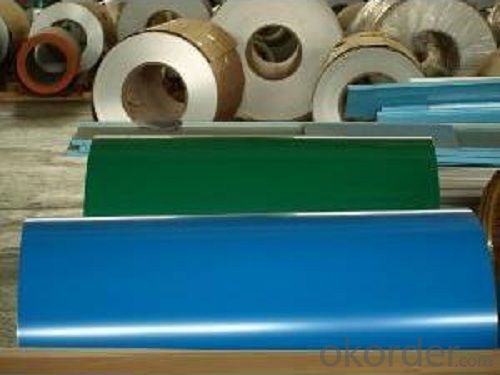
l Certificates
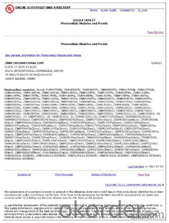
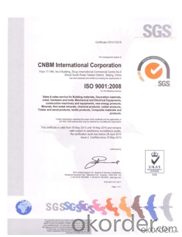
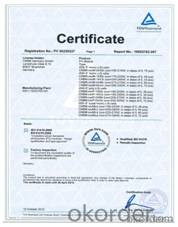
l FAQ
Q: Do you provide free samples?
A: Yes, free samples will be sent to you on freight at destination.
Q: Can I get your latest products catalogue?
A: Yes, it will be sent to you in no time.
Q: What is the MOQ?
A: 2.5 tons
Q: What are your payment terms?
A: We accept L/C, T/T.
- Q: How are aluminum coils cleaned and maintained?
- Regular cleaning is essential for maintaining the optimal performance and efficiency of aluminum coils, which are commonly used in HVAC systems and refrigeration units. Here's a step-by-step guide on how to clean and maintain them: 1. Prioritize safety: Before starting the cleaning process, ensure that the power to the HVAC system or refrigeration unit is switched off to prevent accidents. 2. Remove debris: Begin by getting rid of any visible debris like leaves, dirt, or dust from the aluminum coils. Use a soft brush or a vacuum cleaner with a brush attachment to gently eliminate the debris. 3. Apply a cleaning solution: Create a cleaning solution by mixing water with a mild detergent or coil cleaner. Follow the instructions on the product label to achieve the proper dilution ratio. Transfer the solution to a spray bottle. 4. Use the cleaning solution: Spray the cleaning solution onto the aluminum coils, ensuring that all areas are covered. Allow the solution to sit for a few minutes to loosen any dirt or grime. 5. Gently scrub the coils: Use a soft brush or a coil cleaning brush to gently scrub the aluminum coils. Take care not to apply excessive pressure, as it may damage the delicate fins on the coils. Concentrate on areas with stubborn dirt or buildup. 6. Rinse with water: After scrubbing, thoroughly rinse the aluminum coils with clean water. You can use a hose or a pressure washer on a low setting to ensure that all the cleaning solution and dirt are removed. Make sure that the water flows in the opposite direction of the airflow to prevent pushing debris further into the coils. 7. Inspect for damage: While cleaning, inspect the aluminum coils for any signs of damage, such as bent fins or leaks. If you notice any issues, it is advisable to contact a professional technician for repairs. 8. Allow for complete drying: Once rinsed, allow the aluminum coils to air dry completely before turning the power back on. This will prevent any moisture-related problems and ensure that the coils are ready for use. 9. Maintain a regular cleaning schedule: To keep the aluminum coils in excellent condition, it is crucial to establish a regular cleaning schedule. Generally, cleaning every three to six months is recommended, depending on usage and environmental factors. However, if the coils are located in a highly polluted or dusty area, more frequent cleaning may be necessary. By following these steps and adhering to a regular cleaning schedule, you can ensure that your aluminum coils remain clean, efficient, and in optimal working condition.
- Q: How are aluminum coils used in the production of transportation vehicles?
- Aluminum coils play a vital role in manufacturing transportation vehicles, especially cars and planes. These coils are typically made from high-quality aluminum alloys because they are lightweight, strong, and resistant to corrosion. In the automobile industry, aluminum coils are primarily used to build vehicle bodies, including the frame, doors, hoods, and trunk lids. The lightweight nature of aluminum helps reduce fuel consumption and improve energy efficiency. This makes it a preferred choice for vehicle manufacturers who want to meet environmental regulations and improve fuel economy. Aircraft manufacturing also relies on aluminum coils to reduce weight and ensure optimal flight performance. By incorporating aluminum coils into key components like fuselages, wings, and engine parts, aircraft manufacturers can save a significant amount of weight without compromising structural integrity and durability. The use of aluminum coils in transportation vehicles also contributes to improved safety standards. Aluminum's ability to absorb crash energy makes it an ideal material for manufacturing impact-absorbing structures, such as bumpers and crash boxes in cars. This provides enhanced protection for passengers during collisions. Furthermore, aluminum coils have excellent heat dissipation properties, reducing the risk of engine and other critical system overheating. This is particularly beneficial for high-performance vehicles, where efficient cooling is essential for maintaining optimal operating conditions. In conclusion, aluminum coils are extensively used in the production of transportation vehicles due to their lightweight, strong, corrosion-resistant, and thermally conductive properties. By incorporating aluminum coils into vehicle manufacturing, the automobile and aircraft industries can achieve weight reduction, improved fuel efficiency, enhanced safety, and superior performance. This allows them to meet evolving market demands and sustainability goals.
- Q: The question asks if magnetic induction can be used to inspect the quality of an aluminum coil.
- <p>No, you cannot use magnetic induction to inspect the quality of an aluminum coil. Magnetic induction is a method used to detect flaws or discontinuities in ferromagnetic materials, such as steel, by inducing eddy currents. Aluminum is not a ferromagnetic material, so it does not retain magnetism or support the formation of eddy currents in the same way. Instead, other non-destructive testing methods like ultrasonic testing or radiographic testing may be more appropriate for inspecting the quality of aluminum coils.</p>
- Q: How are aluminum coils stored to prevent damage?
- To prevent damage, aluminum coils are typically kept in a controlled environment. The storage area must be clean, dry, and well-ventilated to prevent moisture buildup that can cause corrosion. It is common to stack the coils on pallets or racks, keeping them off the ground and protecting them from dirt, dust, or water. It is important to ensure that the storage area is free of sharp objects or heavy items that could potentially dent or scratch the coils. Additionally, it is crucial to store the coils in a way that prevents them from shifting or falling, as this could cause deformation or other damage. Proper labeling and organization of the coils are also necessary for easy identification and access without causing harm. Paying careful attention to storage conditions and handling practices is essential in maintaining the integrity and quality of aluminum coils and preventing potential damage.
- Q: Is it possible to create a mobile phone stand or holder using aluminum coils?
- <p>Yes, you can use aluminum coils to make a mobile phone stand or holder. Aluminum is lightweight, durable, and easy to shape, making it a suitable material for such DIY projects. You can bend the aluminum coil into the desired shape to support your phone, either horizontally or vertically. Ensure the coil's diameter is appropriate to hold your phone securely without causing any damage. Remember to smooth any rough edges to prevent scratches on your phone.</p>
- Q: Can aluminum coils be used for automotive body panels?
- Yes, aluminum coils can indeed be used for automotive body panels. In fact, aluminum is becoming increasingly popular in the automotive industry due to its many advantages. Aluminum is lightweight, which can contribute to improved fuel efficiency and overall performance of the vehicle. Additionally, aluminum has excellent corrosion resistance properties, making it a durable choice for automotive body panels. Moreover, aluminum can be easily formed and molded, allowing for intricate designs and better aerodynamics. Overall, the use of aluminum coils for automotive body panels is a viable option that offers numerous benefits.
- Q: How are aluminum coils used in the manufacturing of appliances?
- Aluminum coils are used in the manufacturing of appliances as a key component in the production of heat exchangers. These coils are utilized for their excellent thermal conductivity, which enables efficient heat transfer between the appliance and its surroundings. The coils are shaped into a specific design and then integrated into appliances such as refrigerators, air conditioners, and heating systems to facilitate the cooling or heating process.
- Q: Are aluminum coils suitable for high-temperature roofing applications?
- No, aluminum coils are not suitable for high-temperature roofing applications. While aluminum is a durable and corrosion-resistant material, it has a relatively low melting point compared to other metals commonly used in roofing, such as steel or copper. Aluminum has a melting point of around 660 degrees Celsius (1220 degrees Fahrenheit), which is much lower than the temperatures that can be reached on a hot roof during summer or in areas with high ambient temperatures. Therefore, using aluminum coils for high-temperature roofing applications could lead to the material warping, distorting, or even melting under the excessive heat, resulting in structural damage and potential leaks. It is advisable to use materials with higher melting points, such as steel or copper, for roofing applications where high temperatures are a concern.
- Q: Are aluminum coils more cost-effective compared to other materials like copper?
- Yes, aluminum coils are generally more cost-effective compared to other materials like copper. There are several reasons for this. Firstly, aluminum is a more abundant metal than copper, which makes it cheaper to produce. This abundance also means that aluminum prices tend to be more stable and less prone to fluctuations in the market, further contributing to its cost-effectiveness. Secondly, aluminum coils have a lower density compared to copper coils, resulting in lighter weight units. This lighter weight not only reduces transportation and installation costs but also makes aluminum coils easier to handle and maneuver during the manufacturing process. Additionally, aluminum coils have excellent thermal conductivity properties, which means they can effectively transfer heat. This allows for more efficient cooling or heating systems, resulting in lower energy consumption and operating costs over time. Moreover, aluminum has a higher resistance to corrosion compared to copper, making it more durable and requiring less maintenance. This increased lifespan of aluminum coils reduces replacement and repair costs, further enhancing their cost-effectiveness. Lastly, aluminum coils are recyclable, and the recycling process requires significantly less energy compared to producing new aluminum. This aspect contributes to the overall sustainability and cost-effectiveness of aluminum coils. Overall, considering the lower production costs, lighter weight, superior thermal conductivity, increased durability, and recyclability, aluminum coils are indeed more cost-effective compared to other materials like copper.
- Q: Are aluminum coils suitable for automotive body panels?
- Yes, aluminum coils are suitable for automotive body panels.
Send your message to us
Aluminum Coil Price Per Pound - Decorative Color Coated Aluminum Coil Favorable Price
- Loading Port:
- Shanghai
- Payment Terms:
- TT OR LC
- Min Order Qty:
- 2.5
- Supply Capability:
- 5000 m.t./month
OKorder Service Pledge
OKorder Financial Service
Similar products
Hot products
Hot Searches
Related keywords
